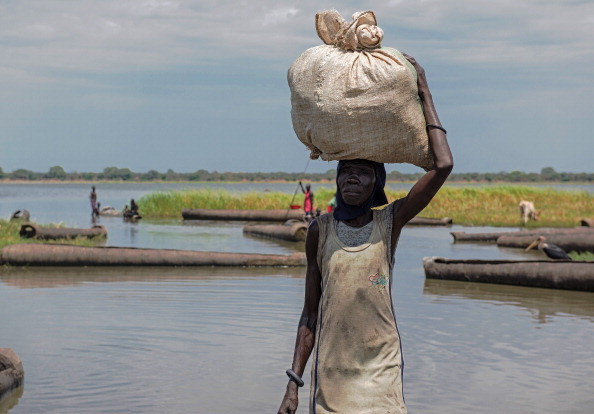Salva Kiir: Fighting Must Stop to Avert South Sudan Famine Disaster

South Sudan faces the risk of famine as sectarian conflict continues in Africa's newest nation, President Salva Kiir has warned.
In an interview with the BBC, Kiir appealed to his counterpart, former vice-president Riek Machar, to quell the violence carried out by the rebels.
"[The famine] is a man-made disaster. And this is why we want the war to stop so that we are allowed humanitarian access.
"We have to stop this fighting, so that we can save people's lives."
A displaced person told the Guardian: "There is no food here. No food. We eat leaves from the trees and the women go out to collect firewood.
"But when the rain comes, it will be still worse. We will starve – and then we will die."
Humanitarian agency Oxfam has warned that more than 200,000 children are already suffering severe acute malnutrition, and an estimated 7 million people - well over half of the population - risk not having enough to eat in the months ahead.
Chief executive Mark Goldring said: "The crisis is at a tipping point. We either act now or millions will pay the price. We need a massive and rapid global surge in aid ... We cannot afford to wait, and we cannot afford to fail."
The South Sudanese government has also warned against a possible cholera outbreak in the capital Juba.
At least 18 suspected cases and one death have already been reported in the city, officials said.
There are fears the disease will spread to crowded camps around the capital.
The conflict in South Sudan started last December when Kiir, from the ethnic Dinka group, fired the then vice-president Machar, an ethnic Nuer, and accused him of plotting to overthrow the regime.
Machar denied the allegations and accused Kiir of carrying out violent purges.
The accusations sparked violence among the two ethnic groups causing the death of thousands and leaving millions displaced.
Several NGOs have accused both warring sides of committing crimes against humanity including mutilation, rape and extrajudicial executions.
The UN mission in South Sudan (UNMISS) warned that hundreds of civilians were being killed due to their ethnic origins and nationality.
UNMISS also warned that radio stations were being used to broadcast hate speech.
Kiir and Machar reached a ceasefire deal earlier in May, but this has failed to stem the violence.
This is the second time a peace agreement has been broken since the beginning of the conflict.
© Copyright IBTimes 2025. All rights reserved.






















